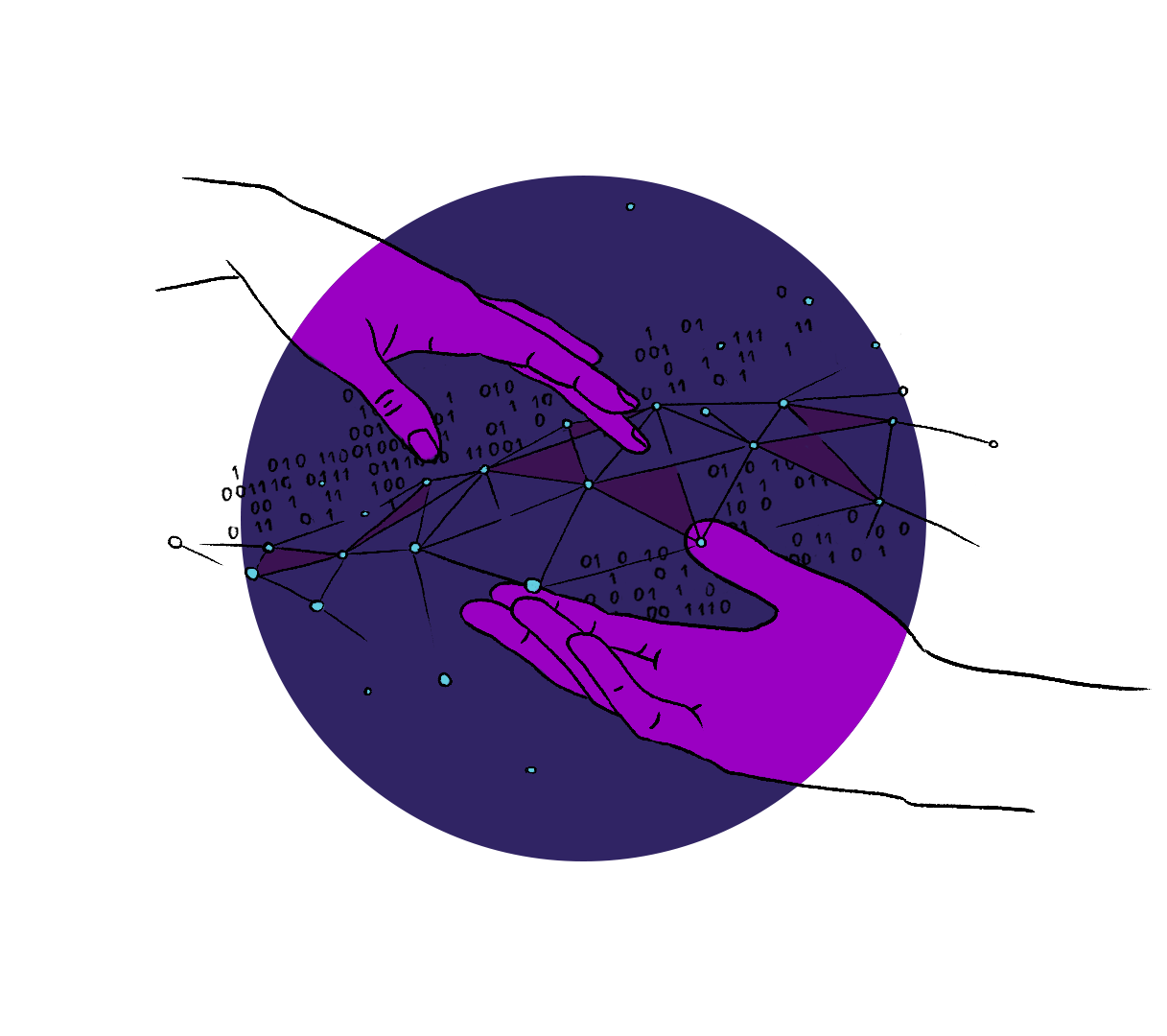The arts provide a model for us to reimagine capitalism as a system that will enable us to address the biggest challenges we face as a society.
Pablo Picasso said that ‘everything you can imagine is real’. So, imagine if capitalism could harness the powers of creativity, vision, transparency, communication, collaboration and culture. Imagine if capitalism could serve its best and highest purpose of driving global economic prosperity. Imagine if capitalism could be in the hands of leaders who strove both to achieve long-term corporate profitability and to meet the massive imperatives of our complex society. Imagine if finance could be the vehicle for this form of capitalism. Imagine if finance could be inspired by the creativity inherent in the arts.
Well, it can.
From jazz we learn about experimentation, collaboration, respect, heritage and our very survival. From photography we learn about both static snapshots and patterns of change, and from sculpture we learn about dimensionality, precision and dexterity. And every one of these skills is incredibly important in finance, investing and capitalism. In fact, they are critical. They are also representations of something that Albert Einstein deeply understood: ‘Creativity is intelligence having fun.’
What is not fun, what is instead horrifying, is to live in a world where millions upon millions of people exist without easy access to clean water and power, where ‘200-year’ weather and fire events happen every year, where water scarcity and malnutrition are the source of social unrest and mass migration, where the oceans will contain more plastic than fish in the coming century, and where thousands of species are becoming extinct every year.
On the other hand, while engaging the financial markets in finding solutions will be a tremendous amount of work, it can potentially be an incredibly gratifying and creative process – and even fun.
To address these massive imperatives, we need a system of capitalism that is rebuilt around the relentless pursuit of a more regenerative and inclusive global economy. To shape this system, we need knowledge of the interrelationships and interdependencies among all its components. This knowledge, essential to optimising the power of capitalism, is dependent on communication, collaboration, respect, empathy and creativity… just as with the arts.
And further, in the words of W. Edwards Deming, an early innovator of systems thinking in business, ‘If you can’t describe what you’re doing as a process, you don’t know what you’re doing.’ Any system has boundaries, but is most certainly more than the sum of its parts. It is defined by interconnectedness, and this is how its power can be unlocked.
We need a system of capitalism that is rebuilt around the relentless pursuit of a more regenerative and inclusive global economy
This process of re-imagining capitalism requires systematic creativity. Lateral thinking and curiosity drive great investors to wonder what will happen in the future and to seek explanations and opportunities in the present. As for the outcomes of their efforts, great investors hope to turn what seems to be the impossible into the inevitable. Today, it would seem to be impossible to achieve the aspirations reflected in the UN’s Sustainable Development Goals (SDGs). To achieve these goals, ranging from no poverty, zero hunger, quality education and reduced inequality to climate action and even world peace, we will need hundreds of trillions of investment dollars to flow towards environmental and social impact.
We will need to transform today’s capitalist system into one that holds more promise for the future. We will not only need a taxonomy of the global capital market ecosystem, but also the creativity to understand how to accelerate this more conscious form of capitalism. In other words, in the context of investing, systematic creativity is the way to use logic and reason, along with imagination and inspiration, to generate ideas that are surprising, pragmatic, scalable and intuitive all at the same time. Systematic creativity will allow a new economic vision of regeneration and inclusiveness to become a reality. It will allow investors to finance problem solving in our very complex global system. It will allow us to channel creativity into different and unique strategies, and to give shape to our hopes and aspirations, our feelings and our identities… just as we do with music, photography, poetry, dance, painting, sculpture and digital arts.
And so, the way forward is through impact investing, which is the process by which we intentionally and systematically deploy environmental, social and governance (ESG) analysis to address the societal imperatives articulated by the SDGs. ESG analysis is a discipline that requires an understanding of the ecosystem of the capital markets. And at this moment in time, the dynamics of the financial ecosystem are shifting. For the first time, we have the confluence of attention paid to issues of our environmental and social circumstances. Asset owners, asset managers, investment banks, academics, regulators, accountants, attorneys, financial exchanges, insurance companies and, importantly, corporations are waking up to the real implications of the climate crisis, wealth inequality and the crises that ripple out from these core challenges. Further affecting the dynamics of the financial system are relatively new technological forces: the powerful wave of social media driving extreme transparency and compressing the time frame for social movements; the advancements in big data that are allowing the noise in the markets to be converted into predictive insight; and the emergence of a new generation of investors who demand greater authenticity and accountability. The system is now ripe for transformation. And we have the opportunity to collectively, systematically and creatively drive progress.
Broadly speaking, we know that systems have proven to be essential for creativity. This is not just because, in using systems, we channel creativity into ideas and structures in a way that enables them to be understood by ourselves and others. It is also because systems allow for a multidisciplinary approach to solving specific environmental and social problems. As an example, with regard to the need to engage the corporate world in sustainability, we need standards for the disclosure of material ESG factors that will give investors the necessary transparency to assess the potential for real economic and profit outcomes, and determine the implications for society more broadly. In other words, we can have a system that bridges economic and societal explorations, making it possible to harness financial analysis and curiosity simultaneously in pursuit of investment returns and impact.
All that said, we have to ensure that our civil society leaders have the mindsets necessary for the creative process: curiosity, mental readiness, confidence, empathy, commitment…
Does that mindset define our leaders? Will they strive to build and experiment with systems that spark imagination, attend to human purpose and values, and sustain engagement? Will we be able to generate global prosperity by creatively adapting the capitalist system to move away from what has been extractive and exclusive?
Only time will tell, but with an understanding of the irrefutable urgency of this moment in history, a commitment to transformation, and a system that allows us to leverage curiosity and creativity, we most certainly can.
And as we continue to experiment and learn, we must persevere in building a system through this period of multiple crises, knowing that, as DaVinci said, ‘Art is never finished, only abandoned.’
Disclosure
This presentation and its content are for informational and educational purposes only and should not be used as the basis for any investment decision. The information contained herein is based on publicly available sources believed to be reliable but is not a representation, expressed or implied, as to its accuracy, completeness or correctness. No information available through this communication is intended or should be construed as any advice, recommendation or endorsement from us as to any legal, tax, investment or other matters, nor shall be considered a solicitation or offer to buy or sell any security, future, option or other financial instrument or to offer or provide any investment advice or service to any person in any jurisdiction. Nothing contained in this communication constitutes investment advice or offers any opinion with respect to the suitability of any security, and this communication has no regard to the specific investment objectives, financial situation and particular needs of any specific recipient. Past performance is no guarantee of future results. Additional information and disclosure on Pathstone is available via our Form ADV, Part 2A, which is available upon request or at www.adviserinfo.sec.gov.
Any tax advice contained herein, including attachments, is not intended or written to be used, and cannot be used, by a taxpayer for the purpose of (i) avoiding tax penalties that may be imposed on the taxpayer or (ii) promoting, marketing or recommending to another party any transaction or matter addressed herein








